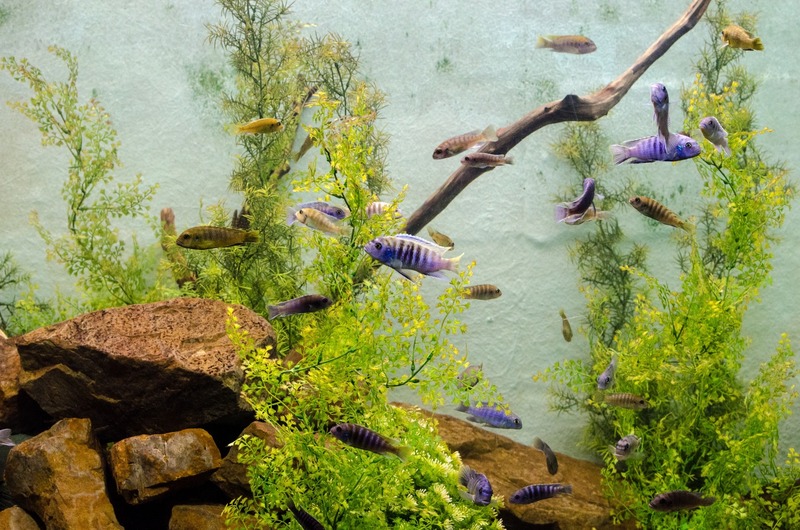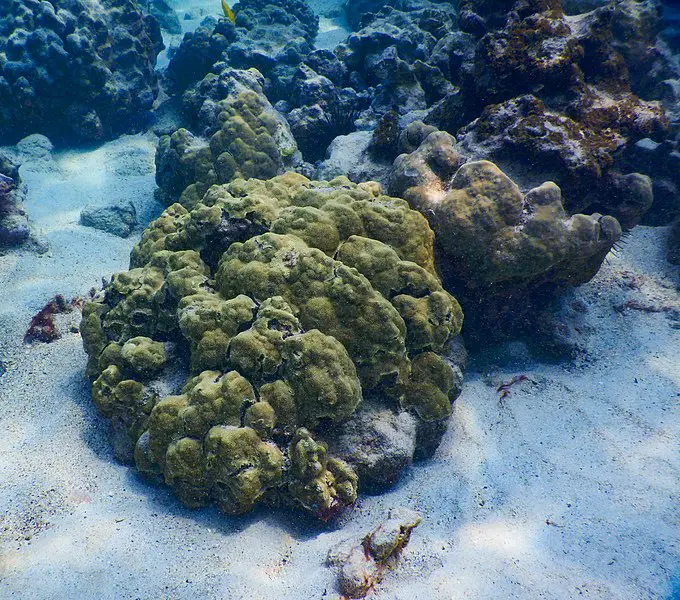Algae is usually something that is frowned upon in fish aquariums and usually for very good reason. It’s not as if algae are bad for your system so much as it’s usually an indicator of a neglected aquarium.
Unless it is a specific type of algae, it’s generally not harmful to your fish. In fact, it’s often a source of food for fish. There is an added benefit as well—it absorbs the carbon dioxide from the fish and fills the tank with oxygen.
For the most part, you don’t want algae in your fish tank, however, it’s also the one thing you will spend most of your aquarium-owning days combatting. Algae is just one of those things that finds a way to grow in water, even in water that’s moving, filtered, and aerated.
Is Algae Bad for a Fish Tank?
Too much algae growth can be harmful to the fish in your aquarium, though a little bit here and there probably won’t hurt anything. According to most aquarium aficionados, too much algae can easily turn into algae blooms, which are the true danger.
Algae blooms do the exact opposite of promoting oxygen. They rob the tank of it if they die. That’s assuming that the algae bloom isn’t already toxic to the fish. It happens in the ocean all the time. Algae blooms increase the toxicity in the fish and humans, who eat them, become sick.
The same thing happens, on a much smaller scale, in an aquarium. One of the things they say is good for an aquarium, especially if you own betta fish, is thealgae. It works best when you have a good filter, rather than just changing the water every now and then.
The thing that brings algae on is the nutrients dissolving in the water, especially when there is a high amount of nitrogen, phosphorous, or ammonia.
Is Algae Good for Fish?
Algae can be good for fish, so long as it can be maintained. There are several good uses for algae in your aquarium. So long as it is controlled and minimized, algae works to the tank’s overall benefit.
They serve as a filter of sorts, reducing bacteria and other harmful microorganisms in your tank. It’s called a biofilter and if you have a good handle on it, you can make good use of it without cleaning everything out.
There is little doubt that the aesthetic value of even a little bit of algae can run the whole look and appeal of your tank. However, fish and other invertebrates love to gobble the stuff up and it does help with some of the bacteria and microorganisms.
It also serves as what is essentially an extra filter. Blue-green algae is a sign that your nitrates are too high. Red algae are probably the most difficult to get rid of but aren’t immediately harmful.
Is Algae Good for My Aquarium?
Fishkeeping hobbyists are a dime a dozen and most of them will tell you that algae does help. Some hobbyists only grow algae in distinct and interesting ways. It also depends on what the algae are and how it affects or fails to affect the aquarium.
Some algae are the kind you just don’t want inside your tank, such as brown algae, red algae, blue-green algae, filamentous algae, or too much green algae. While green algae are great for feeding your fish, you don’t want the stuff to grow too much and get out of control.
That goes for the other algae you don’t really want much of in your tank. If you give them a foothold, some of them are hard to get rid of. In terms of normal green algae, you’re generally good to go, so long as you know how to contain the stuff, without letting it take control of your tank.
Why Does Algae Kill Fish?
There are a few ways that algae can kill fish in your aquarium and if it does, it usually happens pretty quickly.
- Algae blooms cause a spike in unwanted nutrients
- Rapid algae reproduction
- Algae rapid death causes a spike in unwanted bacteria
- Limited light allowed in the aquarium
As you can see, if algae are going to kill your fish, it happens so fast it can honestly be disconcerting. It’s the one reason you have to be cautious about allowing algae to gain a foothold in your aquarium because things can change so rapidly.
Is Fish Tank Algae Harmful to Humans?
For the most part, algae are harmless to humans but there are a few exceptions. Some algae may or may not cause blistering, various irritation to the skin, irritation to the eyes and ears, or other environmental hazards.
For the most part, that stuff boils down to an allergic reaction but some people just don’t get along with algae very well. It just depends. It’s certainly not the nicest thing to run your hands through, so it might cause some base level of disgust.
How Harmful is Algae Remover For My Aquarium Fish?
It’s not supposed to be but it’s important to check with both the manufacturer’s instructions and the background of the type of fish in your aquarium. Most algicides are not supposed to harm your fish or raise toxicity levels in your tank.
However, if you use an algicide and kill the algae, it will annihilate the oxygen in your tank, imperiling all of the fish. It’s important that you cycle your tank and physically remove as much of the algae as you can first. Then come back with the algicide, when little dead algae won’t decimate the oxygen levels.
Dead algae in a fish tank may as well be the same as dumping arsenic in there. It’s not good.
All Things Considered
If you allow algae in your tank, it becomes a perilous balancing beam you have to walk. Algae can both be good and bad. If it gets out of hand, such as not cleaning your tank properly, it can get bad in a hurry. If it all dies at once, that’s even worse. For the most part, despite its lack of aesthetic appeal, it’s harmless.


